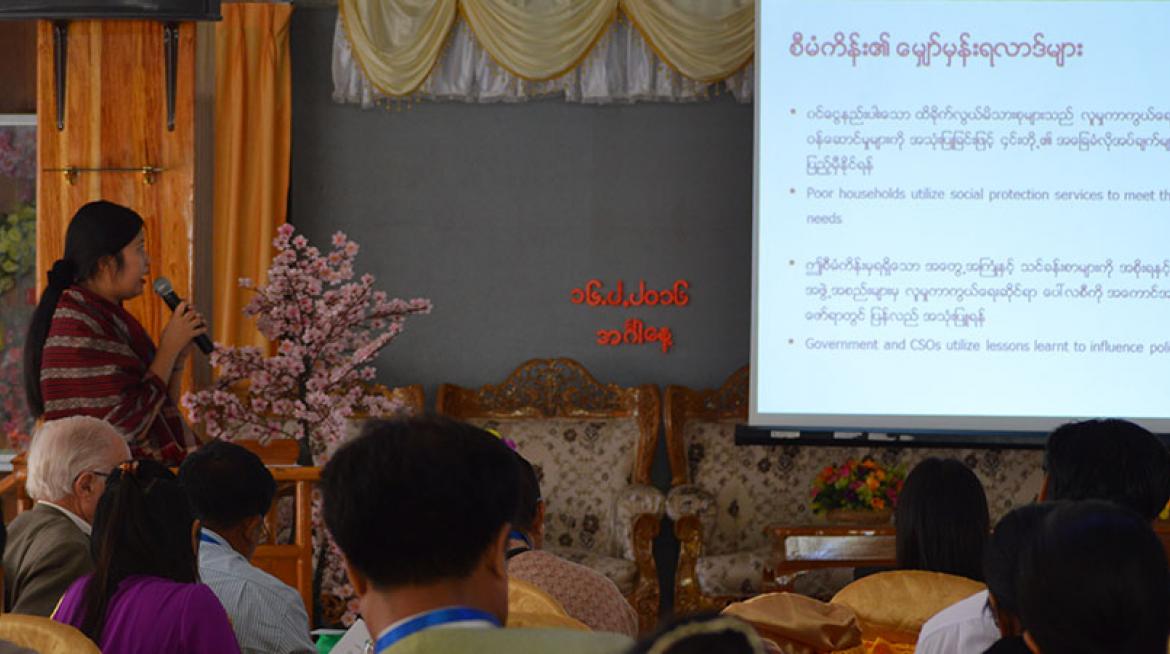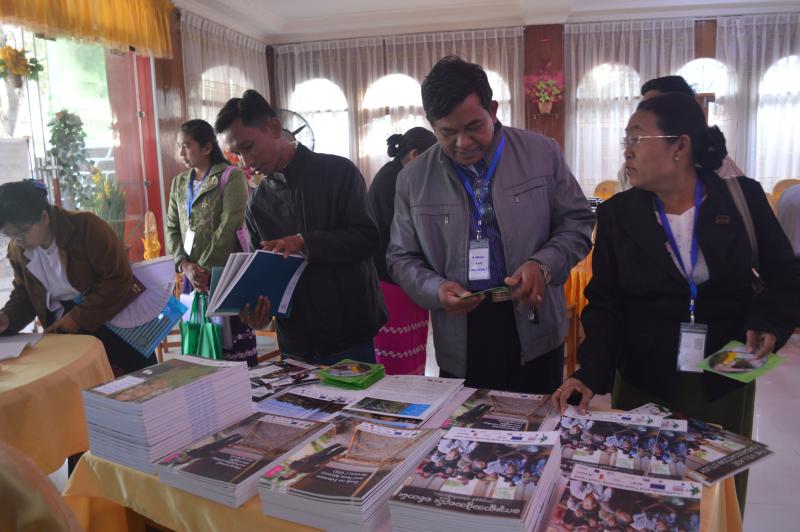
LIFT's new Dry Zone Programme was officially launched at a workshop in Pakokku on February 17. Guests included government representatives from the regional and township levels of the programme’s six townships.

“The Dry Zone is one of the most vulnerable regions in the country in terms of food insecurity, and the selected townships for the programme are the neediest in the region," said U San Lwin, the Regional Director of Department of Planning for Magway Region. "I have no doubt that the assistance through the programme will secure the rural communities’ livelihoods, and we really appreciate the support. Our side is always open and ready to provide any support.”
The event also included a learning corner where LIFT displayed its recent thematic studies, including the Farmer Extension Services, Village Revolving Fund Study and Village Organisation Study. See more publications here.
Background
LIFT has allocated up to US$52 million, including a financial inclusion component, from 2015 to 2018 for the implementation of a programme in the central Dry Zone of Myanmar.
Rural economic growth with a focus on livelihoods and nutrition-sensitive food security will be supported in six target townships: Myingyan, Natogyi, Taungtha and Mahlaing in Mandalay Region and Pakokku and Yesagyo in Magway Region.
The programme will provide new, diverse production and income opportunities to increase the resilience of rural poor households. This will take place in three levels of intervention:
- At village level, LIFT will help households to realise their economic potential by improving agriculture and livestock production, by increasing employment in the wider rural economy, by improving nutrition, and by bolstering the resilience of the poorest households.
- At township and regional levels, LIFT will support activities to improve the rural economy, for example, by promoting small holder farmer inclusion in value chains, and rural finance.
- LIFT will gather lessons and generate evidence to inform the formulation of better policies and public expenditure decisions.
Read more about the Dry Zone Programme here.


